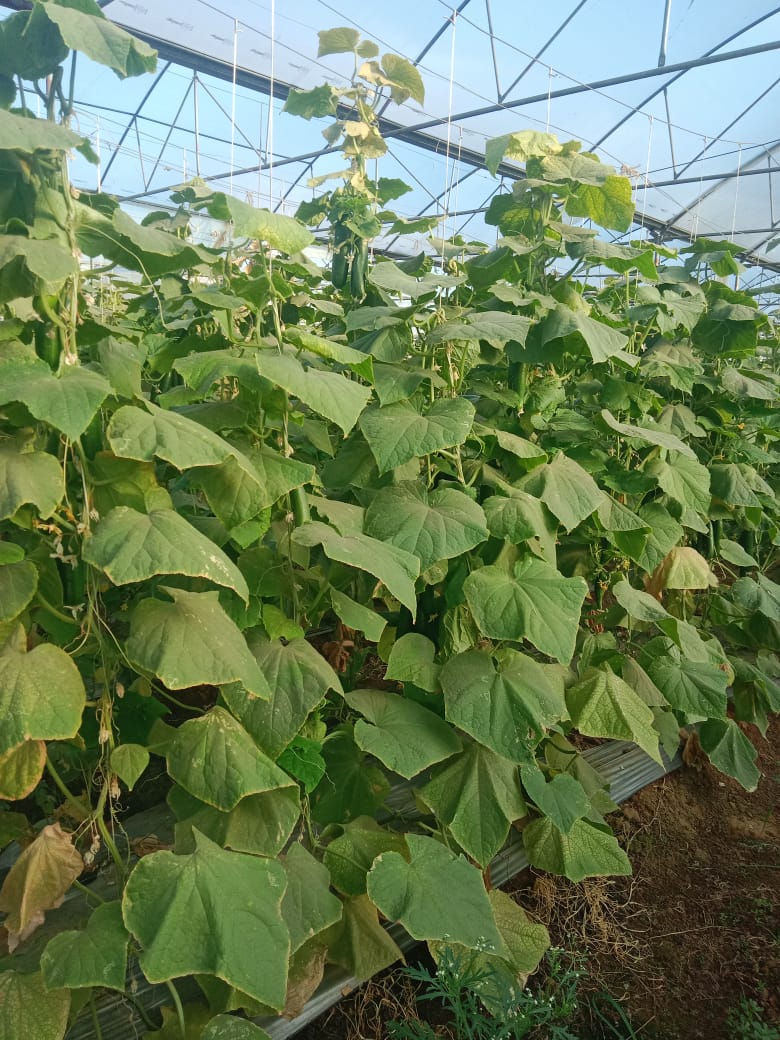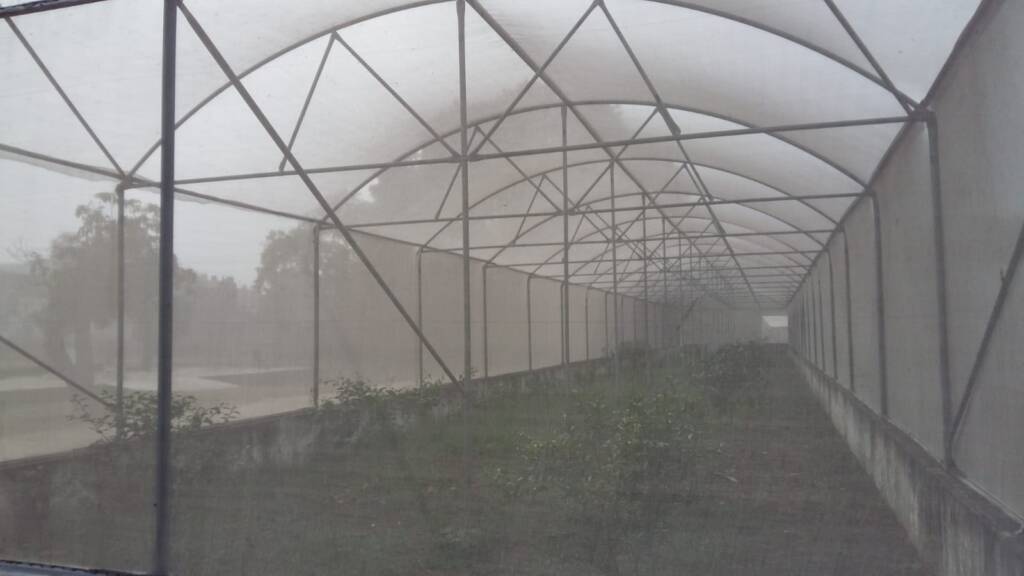Tunnel Power: Boosting Agriculture with Efficiency and Sustainability
In the realm of modern agriculture, tunnel-type polyhouses, also known as shadehouses, emerge as versatile structures designed to optimize growing conditions for crops. Combining the benefits of greenhouse technology with simplicity and cost-effectiveness, these polyhouses provide a controlled environment that promotes crop growth while offering protection from adverse weather conditions. Let’s explore the features, advantages, and suitability of tunnel-type polyhouses in agricultural practices.
Features:
- Structure and Design: Tunnel-type polyhouses typically consist of arched or hoop-shaped frames made from materials such as galvanized steel, PVC pipes, or bamboo. These frames are covered with polyethylene or shade netting, which allows varying degrees of light transmission and shading, depending on crop requirements.
- Natural Ventilation: Unlike fully enclosed greenhouses, tunnel-type polyhouses are designed with open ends or adjustable vents. This design promotes natural ventilation, allowing for adequate air circulation and temperature regulation. It reduces the risk of humidity buildup and provides a more favorable environment for plant growth.
- Light Management: Polyethylene films used in tunnel-type polyhouses can be UV-stabilized to control light transmission. Shade netting variants offer options for different levels of shading, which can be adjusted seasonally or based on crop preferences. This flexibility optimizes light exposure for photosynthesis and crop development.
- Cost-Effectiveness: Compared to traditional greenhouses with rigid structures and glass panels, tunnel-type polyhouses are generally more affordable to construct and maintain. The use of lightweight materials and simplified construction techniques reduces initial investment costs while still providing effective crop protection and environmental control.
- Adaptability and Scalability: Tunnel-type polyhouses are versatile and adaptable to various climatic conditions and crop types. They can be easily expanded or modified to accommodate changing needs and growing seasons. This scalability makes them suitable for both small-scale farmers and larger commercial operations.
benefits:
- Season Extension: Tunnel-type polyhouses extend the growing season by providing early protection from cold weather in spring and extending harvests into late fall or winter. They create a microclimate conducive to plant growth, allowing farmers to cultivate crops outside their typical growing season.
- Crop Protection: By shielding crops from excessive rain, wind, pests, and diseases, tunnel-type polyhouses reduce crop losses and improve yield reliability. They provide a physical barrier against adverse weather conditions while maintaining favorable growing conditions inside the structure.
- Water Conservation: These polyhouses support efficient water management practices. Rainwater harvesting systems can be integrated, and irrigation can be controlled more effectively within the enclosed environment, minimizing water wastage and enhancing resource efficiency.
- Environmental Sustainability: Tunnel-type polyhouses promote sustainable farming practices by reducing the need for synthetic pesticides and fertilizers. They enable farmers to adopt integrated pest management (IPM) techniques and organic farming practices more easily, contributing to environmental conservation.
- Enhanced Crop Quality: The controlled environment inside tunnel-type polyhouses results in higher-quality crops with consistent characteristics such as size, color, and flavor. This consistency meets market demands for premium produce and enhances the economic viability of farming operations.
| Product Name | Naturally Ventilated Polyhouses |
| Roof Type | Dome Roof |
| Available Size | 280 m2 to 800 m2 |
| Grid | 8 m x 3 m (NHB guidelines), 8 m x 4m, 10 x 3m |
| Side / Center Height | 3.0 m / 4.5 m, 4.0 m / 5.5 m, 4.5 m / 6.0 m, 4.5 m / 6.0 m |
| Distance between 2 archies | 3 m, 4 m |
| Side covering | Insect net 110 GSM, Mono x Mono net with Apron Sheet 160 GSM |
| Top Covering | Poly sheet 200 micron |
| Second layer | Inside Sliding net Cover with 50% Shed net mono. |
| Trellising System | 8mm, 4mm Rope wire with 3mm Plastic wire or 3mm G.I wire |
| Drip Irrigation | Inline drip irrigation system, fogging System |
| Usage/ application: | Vegetable Farming (Broccoli, Capsicum, cucumber, chillies, tomato etc.), Flower farming, Herbs cultivation, nursery farming, etc. |



